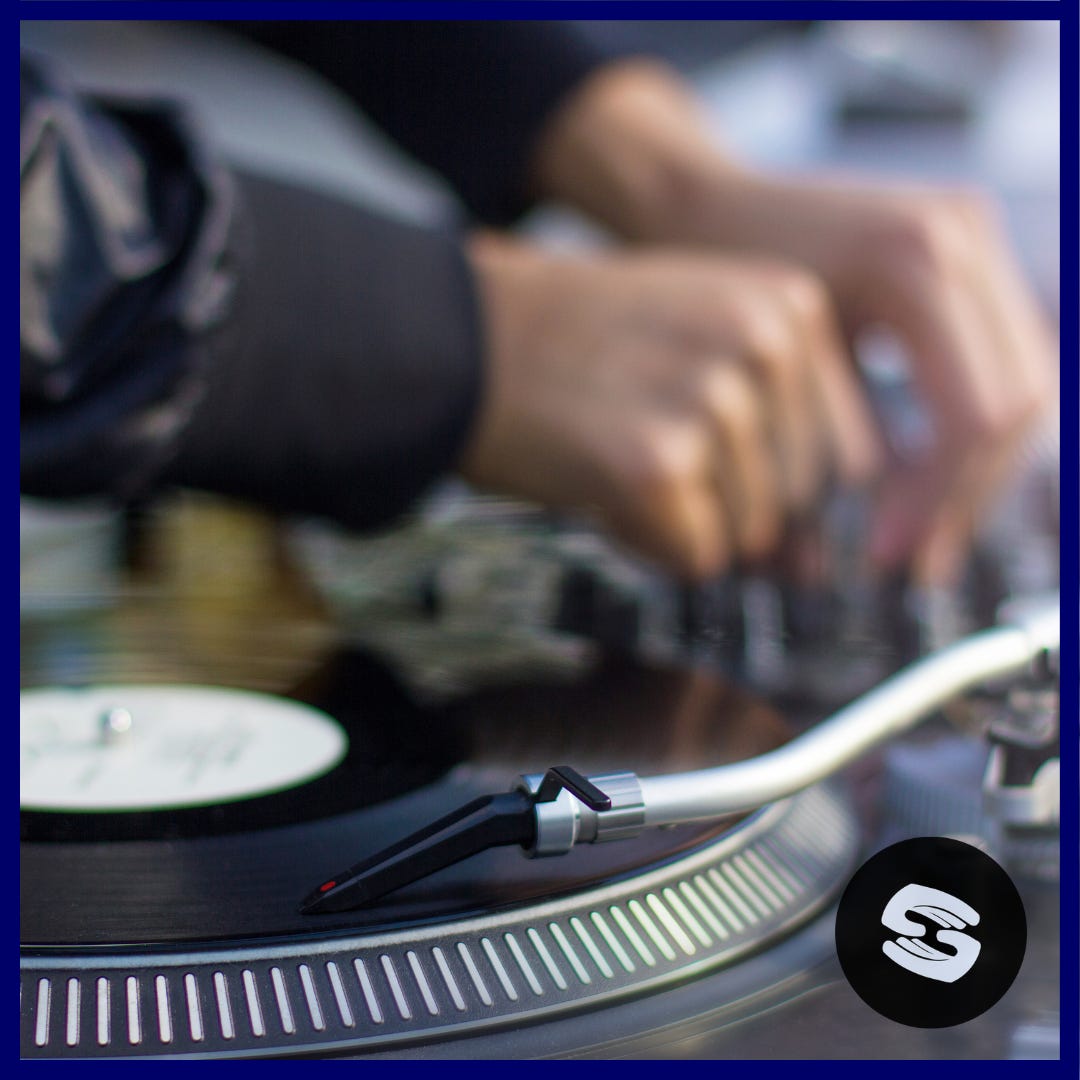DJ Equipment
How To Construct Your Dream DJ Setup
Technology Drives Innovation
There are Only Tools and No Rules
The tools available to DJs change over time, but the fundamental elements have been intact since the early '80s. The technology gives the DJ the ability to mix two or more recorded tunes artistically.
Currently, there are three schools of thought when it comes to DJ equipment:
Elitist - "Pioneer is the Industry Standard, and Technics 1200's are the only vinyl turntable worth owning."
Generalist - "Give me this pizza box, and I will rock a party."
Nautical Engineer - "It's simple, I connect this sequencer to a looper that activates a gate running the wazoo effects processor creating live music using the whimper of a crying baby."
DJs choose Hardware and Software components based on what they like, what looks fun to them and their overall intentions.
What Do You Envision?
The way to discover what DJ equipment is right for you is to start with your end goals in mind. For example, what kind of DJ do you want to become, and what kind of events and shows do you want in the future.
The best general advice I have heard is that you should always buy the best you can afford.
In the Audio Visual industry, you get what you pay for, and if you fork up what you can, it will save you having to upgrade or change, thus saving you money.
Buying second-hand equipment is another way to get started, and you can get great deals on high-quality gear.
Master Your Technology. Once you commit to buying some equipment, make sure you master it before deciding to upgrade.
Many DJs get trigger-happy and think that the equipment will make them good DJs. It is, in fact, the music and practice which plays a more critical role, just like learning any other instrument.
Types Of DJ Equipment
Traditionally three elements define traditional DJ gear
Decks - Two (or more) music sources
Mixer - Ability to mix music and affect their volume and frequencies
Headphones and Speakers - Separate outputs for the crowd to Dance and for the DJ to prepare the following songs
Audio signal flows through the system, and the DJ has the power to change the input signals as they make their way to the master output and out to a crowd.
1. Music Sources
Analog equipment like Vinyl Turntables sends an electrical signal from a stylus that moves through the grooves of a record.
Digital Equipment such as media players encodes and decode the audio signal into bits and bytes.
These Source Devices play the music that then flows into a mixer to be processed and routed.
Common Sources Include;
Vinyl Turntables
CDJ/Media Players
Midi Controllers
DVS (Digital Vinyl Systems)
Other, E.G. iPod, Computer, Sampler etc.
2. Mixer
A Mixer has a channel count of two or more, which means you can plug two musical sources into a 2 channel audio mixer.
Battle mixers commonly have 2 channels, while club mixers offer 4 channels.
Mixers might look confusing, but once you understand a single channel strip, you can apply the fundamental understanding to almost any equipment.
Some DJ Midi Controllers have the mixer and music source elements packaged into one console, while other DJ setups are modular and involve connecting equipment together using cables.
Some mixers will accept various signal types. Most standalone mixers have separate Line inputs for CD/Media Players and Phono for Vinyl Turntables.
The signal flows from input to outputs, following the signal path through the mixer and faders.
Some DJs equipment will be connected to software, meaning you will need a laptop in some cases when the music is digital.
3. Headphones and Speakers
DJs use headphones to listen/CUE music in their ear before they send it out to the crowd/master speakers. The mixer will have the function to route different sources to the headphones.
Speakers come in 2 forms:
Active - Have an inbuilt amplifier
Passive - Need to be powered by an external amplifier
Some mixers also have a dedicated output for the DJ Booth in case the master speakers will are a distance away from the DJ (Causing Delay).
Can You DJ With Only USB and Headphones?
Yes, If your end goal is to DJ in clubs and festivals, they will usually have the equipment that will allow you to mix with some USBs and Headphones.
Many DJs will have a contingency plan, such as bringing a CD or an iPod (with RCA to AUX Cable) as a backup.
What Other Accessories Do You Need To Get Started?
Note: some DJs choose to rent the equipment when they are first starting. Renting things like speakers, basic mixers, microphones, and lights from an AV rental company is a great way to scale up a mobile/wedding DJ business without breaking your back.
Remember Lift With Your Legs, Not Your Back!
Here are some of the other peripherals that a DJ uses.
Earplugs
USBs and Hard Drives
Microphones
Computers
Cables



